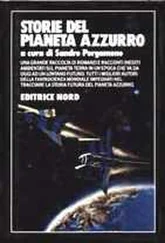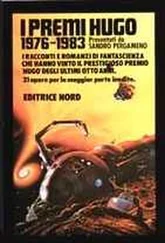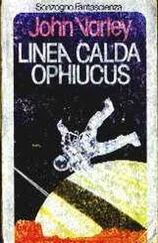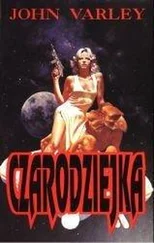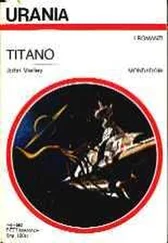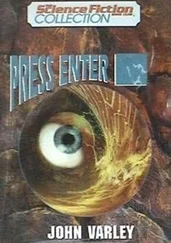John Varley - Millennium
Здесь есть возможность читать онлайн «John Varley - Millennium» весь текст электронной книги совершенно бесплатно (целиком полную версию без сокращений). В некоторых случаях можно слушать аудио, скачать через торрент в формате fb2 и присутствует краткое содержание. Жанр: Фантастика и фэнтези, на английском языке. Описание произведения, (предисловие) а так же отзывы посетителей доступны на портале библиотеки ЛибКат.
- Название:Millennium
- Автор:
- Жанр:
- Год:неизвестен
- ISBN:нет данных
- Рейтинг книги:3 / 5. Голосов: 1
-
Избранное:Добавить в избранное
- Отзывы:
-
Ваша оценка:
- 60
- 1
- 2
- 3
- 4
- 5
Millennium: краткое содержание, описание и аннотация
Предлагаем к чтению аннотацию, описание, краткое содержание или предисловие (зависит от того, что написал сам автор книги «Millennium»). Если вы не нашли необходимую информацию о книге — напишите в комментариях, мы постараемся отыскать её.
Millennium — читать онлайн бесплатно полную книгу (весь текст) целиком
Ниже представлен текст книги, разбитый по страницам. Система сохранения места последней прочитанной страницы, позволяет с удобством читать онлайн бесплатно книгу «Millennium», без необходимости каждый раз заново искать на чём Вы остановились. Поставьте закладку, и сможете в любой момент перейти на страницу, на которой закончили чтение.
Интервал:
Закладка:
Five hours later I was on a red-eye flight to Los Angeles.
I rented a car at LAX and headed out toward Santa Barbara I hadn't called ahead to see if he was home, because I didn't want to admit to myself what I was doing, and on what thin motivation.
Arnold Mayer had quite a place. I knew how to find him because, a few days after he'd questioned me at the press conference, he'd sent me a business card with his address and phone number. That was back when I still thought I could develop something someone would listen to. Now I was down to him. He'd wanted to know if I had come up with anything unusual, and I was ready to bend his ear.
I drove by a few times before I got up the nerve to stop It was out in the country, on a couple overgrown acres. There was a high antenna that looked to me like ham equipment, a bank of solar heat collectors, and a large and quite expensive satellite dish sitting in his front yard, aimed into the morning sky.
He didn't seem worried about pleasing the neighbors -- not that he had to; the last house I'd seen had been a mile back down the road. His yard had gone to seed. There were things here and there, like the fuselage of an old Air Force F-86 with a rusted-out engine sitting beside it.
There were automotive hulks, too, and old television sets and a big pile of all sorts of electronic equipment, from ancient UNIVAC machines to the guts of a fairly recent videotape recorder.
It sounds like I'm talking about a Georgia sharecropper's yard, and that was certainly the atmosphere it gave off. But this was high-tech junk, and the house that stood in the middle of it all was sturdy red brick, two stories high. Antennas sprouted from every cornice and gable.
The sidewalk was cracked, and the varnish had long since vanished from his front door.
Yet everything still looked basically sound. I decided he just didn't give a damn for fancy finishes.
I took a deep breath, and pushed the doorbell. Somewhere inside, I heard that silly little five-note theme from Close Encounters. I hoped it was a joke.
I wasn't prepared for how tall he was. He'd looked shorter from the podium where I'd stood that night. Most of the top of his head was bald and shiny. What hair he did have was pure white. He didn't look a bit like Einstein, but I thought of him anyway. He was wearing a yellow shirt with a little alligator and a pair of paint-stained work pants.
"Bill Smith," he said, with a sympathetic smile. He put his hand lightly on my shoulder and stood aside, guiding me in with an easy intimacy I wasn't sure I liked. He closed the door and turned to face me.
"I've been expecting you," he said.
"That's interesting, because I didn't know until a few hours ago I was coming here."
"But where else could you come? I've heard what happened to you. I'm sorry, though I can't say I'm surprised."
"What do you know?"
"Very little. Just that you've been behaving erratically. My sources have given me the most fascinating tidbits-nothing but rumors, really. I had hoped you might come discuss them with me. And here you are."
"I'm not sure why I'm here."
He scrutinized me, and nodded. "Why don't you wait in my study for a moment and think it over. I have something on the fire in the other room, and it won't wait."
I was going to protest, but he was already gone.
His "study" was weird. I loved it.
One wall was mostly glass. It looked out over a valley. In the far distance was a major highway. A little closer teas an orchard of some kind. And up close was his back yard, which couldn't have been more different from the front. There was a large vegetable garden back there, lovingly tended.
The walls were all bookcases, which were all jammed. Among the books .were computer tapes, floppy disks, records, loose manuscripts, magazines, and journals. There was furniture in the room, but to sit in any of the chairs I would have had m move a stack of papers. He had a magnificent old wooden desk. On it was a fancy computer terminal, and behind it was a stereo system cobbled together from laboratory digital components. There were speakers big enough to pulverise Carnegie Hall.
It was a jumbled museum. There were stuffed birds in glass bell jars, a brass astrolabe, a globe that would have made Nero W olfe turn green with envy. There was also a gas chromatograph with its guts torn out and tools lying around it, an Edison phonograph for playing cylinders, three IBM Selectrics stacked in a corner gathering dust, a giant Xerox machine that stretched through a doorway into another room, and a crystal ball that wouldn't have made it through an NBA hoop. Sitting here and there on tables were bits and pieces of laboratory glassware.
The only bare wall was over the fireplace -- bare in the sense of having no bookcases.
There were a few trophies on the mantel, and pictures and diplomas hung on every available square inch.
I'd been looking at one for quite a while before I realized it was a Nobel Prize. I'd thought the actual prizes were medals, but maybe he had that tucked away somewhere. This was an ornate parchment, for Physics, and it was dated in the "60s. I thought I should have known his name, but they give those things away to four or five people every year and usually you've never heard of them and have no idea what they were given for. Still, I was impressed.
There was a picture of Mayer with President Eisenhower. Signed: "Regards, Ike." There was a group picture: Mayer, Linus Pauling, Oppenheimer, and Edward Teller. There was a shot of a much younger Mayer shaking hands with Mr Relativity himself: Albert Einstein. It was unsigned. I was right, Mayer didn't look anything like him.
"I confess it," he said, behind me. "I'm a pack rat. I can never seem to throw anything away. I used to, and then a few years later I'd try to find it and it wouldn't be there."
He hurried into the room, wiping his hands on a towel. He seemed nervous. I wondered why, until he picked up a plate with a half-eaten sandwich on it and a wine glass with a red stain at the bottom. He kept bustling around the room, not making a dent in the clutter but seeming to feel he had to clean up.
"I have a girl who comes in once a week," he apologized. "She manages my excesses.
Makes sure typhoid doesn't get a foothold." He picked up a soiled shirt and a single red sock.
"Doctor Mayer, I don't-"
"You might wonder how she knows what is excess and what is not," he said, on his way out the door. I heard him dumping the debris somewhere, raising his voice so I could hear him. "Its not an easy task, but I have trained her fairly well. She will not disturb the important experiments in progress. She sticks to the spoiled food and spilled coffee." He was back now, helplessly scanning the room.
"Doctor Mayer, it doesn't matter to me. I know what a working laboratory can look like."
"You might not believe it," he said, "but I know where everything is."
"I thought you would."
He looked at me closely for the first time since his return, and he seemed to relax a little.
God knows, the last thing I had expected was to have to reassure him.
"Call me Arnold, please," he said. "I don't go for the Doctor bullshit." ,, He eventually got me settled in a comfortable red leather chair facing his desk, with a glass of The Glenlivet sitting on a table beside me. I raised the glass and sipped; I thought I ought to keep my wits about me.
"You go first class," I said, indicating the bottle of whiskey.
"Some lucrative patents," he said, with a shrug. "Investments. They provide enough money for an old fool to indulge his wild theories."
"Are you a theoretical or applied physicist?"
He laughed, looked at me askance, and settled down in his chair. I had the feeling he was humoring me; he knew I had come to tell him a story, but I couldn't just come right out with it.
Читать дальшеИнтервал:
Закладка:
Похожие книги на «Millennium»
Представляем Вашему вниманию похожие книги на «Millennium» списком для выбора. Мы отобрали схожую по названию и смыслу литературу в надежде предоставить читателям больше вариантов отыскать новые, интересные, ещё непрочитанные произведения.
Обсуждение, отзывы о книге «Millennium» и просто собственные мнения читателей. Оставьте ваши комментарии, напишите, что Вы думаете о произведении, его смысле или главных героях. Укажите что конкретно понравилось, а что нет, и почему Вы так считаете.

